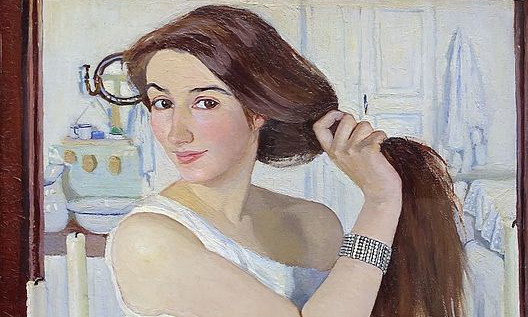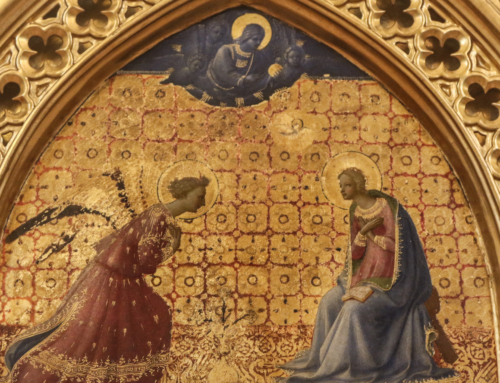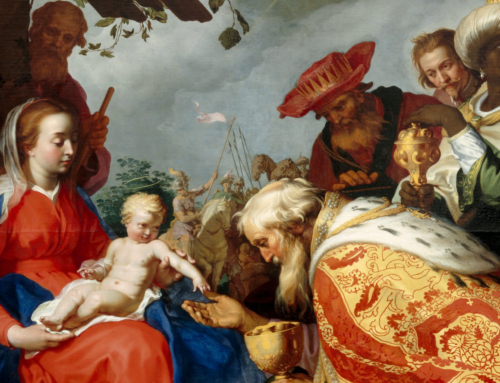Above is an image of Zinaida Serebriakova, a woman created in the image of the Triune God. Zinaida sees herself in the mirror and knows herself; she sees herself to be beautiful, knows herself to be good. Seeing and knowing herself, she loves herself, and rightly delights in the goodness and beauty that she knows and sees.
Zinaida painted her body beautifully, but her self-portrait’s deeper appeal springs from showing her soul in the very act of knowing and loving, those acts that make the human person uniquely like God. Zinaida’s painting invites us to share her knowledge and love, her intimate vision and sound self-esteem.
Tragically, her vision is all too unique. Through confused vision, other self-portraits reveal ungrounded, unbounded, or sadly lacking love. The cynic may claim that Zinaida’s playful delight, like that of others before, is doomed to be tainted, crack, and fade. But even after her young husband’s death and the adding-on of years, her self-portraits retain a pure light, a firm peace.
How can we share Zinaida’s vision and love? God gave another strong woman the paradoxical key: “I AM He who is. You are she who is not.”
At first, this saying of St. Catherine of Siena could seem the antithesis of self-esteem. Denying one’s existence seems an odd route to securing self-security. Often, self-esteem is sought in enumerating laudable qualities and accomplishments or even asserting a goodness not subject to honest inquiry. This puts it it into irreconcilable conflict with falsely sought humility, which focuses on foibles, faults, and failings in order to force a negative judgment of one’s own goodness.
Saint Catherine’s saying, on the other hand, grounds self-knowledge and love in an unshakable truth, metaphysical rather than moral. She did not say, “I am not good,” “I am not talented,” “I am not virtuous,” “I am not beautiful,” or any such thing. She said simply, “I am she who is not.”
And yet she was. Likewise, I am he who is not, and yet I am.
If I, who am not, am, it can only be from, through, and in Him who is.
I, who am not, am because God is. He is the unbegotten Father. He is the only begotten Son through whom the Father knows Himself. He is the Holy Spirit proceeding as love from the Father knowing the Son. He is He who is.
From Him, I am. Through His Son, the Father knows me as someone who could be like Him, albeit partially and imperfectly. In the Holy Spirit, the Father loves me through the Son, and this Trinitarian love makes me actually to be. Thus, I am.
Being wholly from God, we can only hope to find true self-knowledge and rightly ordered self-love from the Father from whom we are, through the Son through whom we are who we are, and in the Spirit in whom we live and breathe and have our being. This knowledge does not avert its gaze from faults and sufferings; rather, it sees them all the more clearly in light of the God who lovingly creates despite them, and who was killed by our sins in order to conquer them.
The Triune God, our rock, not the shifting sands of our good or lacking qualities (or worse, accomplishments and deeds), is the foundation of true self-knowledge and healthy self-love. I suspect it was God’s light that enabled Zinaida, a Catholic, to paint herself so clearly in His image. May we too come to see ourselves in God’s light and one day come to see Him face to face, to know Him fully as we are fully known.
✠
Image: Zinaida Serebriakova, At the Dressing Table







